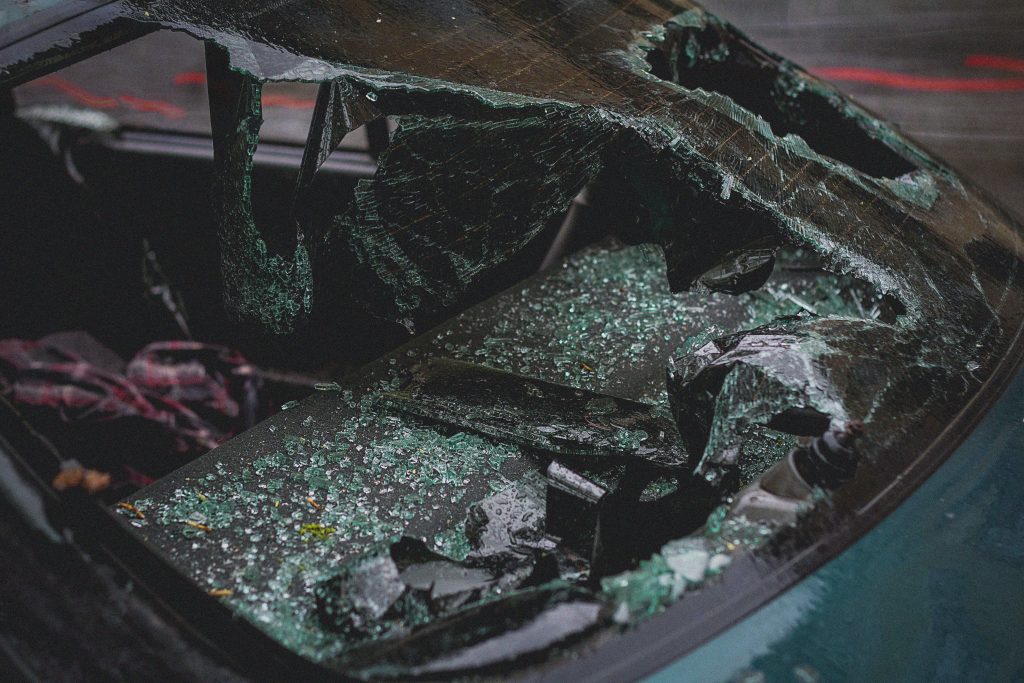 Being allowed to use an employer owned vehicle is a nice benefit to have. When there is an accident there may be questions of who pays for the damage or injuries. In this case, any accident and insurance policy questions were completely in favor of the insurance company and backed up by both state statutes and case law guidance. But, poor customer service by the insurance company turned a complete legal victory into costly litigation.
Being allowed to use an employer owned vehicle is a nice benefit to have. When there is an accident there may be questions of who pays for the damage or injuries. In this case, any accident and insurance policy questions were completely in favor of the insurance company and backed up by both state statutes and case law guidance. But, poor customer service by the insurance company turned a complete legal victory into costly litigation.
Naddia Melder was employed by Grimes Industrial Supply. One of the benefits of her employment was the use of a pickup truck owned by Grimes. In March 2007, Mrs. Melder was involved in an accident with one other vehicle. It turned out that the other vehicle was underinsured and Mrs. Melder’s uninsured motorist insurance claim against her personal insurer was denied. Mrs. Melder brought a lawsuit against her personal insurance carrier, Louisiana Farm Bureau Casualty Insurance Company, in order to find a way for insurance to cover the accident.
Farm Bureau asked the Trial Court to grant summary judgment in favor of denying coverage for the accident and the Trial Court agreed. Mrs. Melder then appealed. Mrs. Medler’s appeal was based on her view that the Trial Court incorrectly determined that she was driving a vehicle that was owned or furnished by someone else and that her insurance policy did not extend to cover this vehicle. There was an exclusion in her policy which stated that coverage would not be extended to vehicles furnished to her, but she believed it should not apply because it conflicted with a Louisiana law. She also argued that the insurance payments she received were received late.
 Louisiana Personal Injury Lawyer Blog
Louisiana Personal Injury Lawyer Blog


 The jury trial is an infamously complicated process. From the trials of OJ Simpson to Paul Manafort, the jury’s role is to determine the truth behind the legal jargon, and to serve and protect justice. Juries rely on the information presented to them by experienced lawyers and judges to navigate the complexities of the courtroom. However, sometimes there are mistakes made. Despite some inaccurately presented technicalities, the Fifth Circuit Court has ruled to uphold the sanctity of the juror’s role as a fact-finder.
The jury trial is an infamously complicated process. From the trials of OJ Simpson to Paul Manafort, the jury’s role is to determine the truth behind the legal jargon, and to serve and protect justice. Juries rely on the information presented to them by experienced lawyers and judges to navigate the complexities of the courtroom. However, sometimes there are mistakes made. Despite some inaccurately presented technicalities, the Fifth Circuit Court has ruled to uphold the sanctity of the juror’s role as a fact-finder.  If you and the opposing party in your lawsuit reach a settlement agreement, it might seem like your legal battle is over. However, trouble can arise if the other party does not do what they promised to do. This is the situation Cheri Gardner found herself in following a car wreck and the resulting settlement with State Farm.
If you and the opposing party in your lawsuit reach a settlement agreement, it might seem like your legal battle is over. However, trouble can arise if the other party does not do what they promised to do. This is the situation Cheri Gardner found herself in following a car wreck and the resulting settlement with State Farm.  Every adult has had to deal with some type of insurance in their life, whether it be home, auto, or life insurance. When it comes to car insurances, there are numerous different types of policies, and, in some situations, automobiles are covered by personal umbrella policies. Similar to any other contract, an insurance policy is a contract between the insurance company and the insured and must be interpreted using the general rules set forth in the Louisiana Civil Code.
Every adult has had to deal with some type of insurance in their life, whether it be home, auto, or life insurance. When it comes to car insurances, there are numerous different types of policies, and, in some situations, automobiles are covered by personal umbrella policies. Similar to any other contract, an insurance policy is a contract between the insurance company and the insured and must be interpreted using the general rules set forth in the Louisiana Civil Code.  Insurance plans and policies are often riddled with complicated jargon and loopholes to protect insurance companies from financial loss. These confusing insurance provisions can lead an individual to think he/she is covered in case of an accident, but many times leaves individuals unprotected. In one recent Louisiana lawsuit, a consumer’s expectations of coverage are shattered by the complexity of insurance provisions.
Insurance plans and policies are often riddled with complicated jargon and loopholes to protect insurance companies from financial loss. These confusing insurance provisions can lead an individual to think he/she is covered in case of an accident, but many times leaves individuals unprotected. In one recent Louisiana lawsuit, a consumer’s expectations of coverage are shattered by the complexity of insurance provisions. Sometimes, a single witness can make the difference between winning and losing at trial. This is especially so when you are fighting for reasonable medical compensation. Since insurance companies generally try to give patients the least amount of money as possible, they look for all sorts of ways to do so. One way is to prevent a patient’s physician from testifying and giving an opinion of what he or she believes is causing the patient’s current pain. In the following case, the defendant attempted to do just this, but fortunately for the plaintiff, the Court of Appeal found error in the trial court’s decision to exclude the testimony of the plaintiff’s physician.
Sometimes, a single witness can make the difference between winning and losing at trial. This is especially so when you are fighting for reasonable medical compensation. Since insurance companies generally try to give patients the least amount of money as possible, they look for all sorts of ways to do so. One way is to prevent a patient’s physician from testifying and giving an opinion of what he or she believes is causing the patient’s current pain. In the following case, the defendant attempted to do just this, but fortunately for the plaintiff, the Court of Appeal found error in the trial court’s decision to exclude the testimony of the plaintiff’s physician.  Insurance policies are often complex and difficult to understand. However, especially when an insurance policy is at issue in a lawsuit, it is essential that you fully read and understand what the insurance policy covers in order to maximize your chance of recovery success, as well as understand the principles that courts use in interpreting policy provisions.
Insurance policies are often complex and difficult to understand. However, especially when an insurance policy is at issue in a lawsuit, it is essential that you fully read and understand what the insurance policy covers in order to maximize your chance of recovery success, as well as understand the principles that courts use in interpreting policy provisions. In today’s world, consumers are faced with increasingly complicated contracts and waiver forms for even the simplest transactions. These contracts not only have the potential to confuse consumers, but create an opportunity for corporate exploitation. The following case illustrates an example of the courts reaffirming protections for consumers over companies.
In today’s world, consumers are faced with increasingly complicated contracts and waiver forms for even the simplest transactions. These contracts not only have the potential to confuse consumers, but create an opportunity for corporate exploitation. The following case illustrates an example of the courts reaffirming protections for consumers over companies.  A Mardi Gras Ball can be an exciting and fun event; however, when someone is injured, the mood turns from festive to fearful. If you were the one injured, from whom do you recover your damages? Can you even recover? If you are the organization, are you insured? Who will bear the cost associated with the injury? For an organization, having a strong insurance contract from the beginning can work to alleviate these concerns and many others.
A Mardi Gras Ball can be an exciting and fun event; however, when someone is injured, the mood turns from festive to fearful. If you were the one injured, from whom do you recover your damages? Can you even recover? If you are the organization, are you insured? Who will bear the cost associated with the injury? For an organization, having a strong insurance contract from the beginning can work to alleviate these concerns and many others.  Insurance policy language is carefully crafted to limit the areas of coverage. A Ponchatoula area boating business tried and failed to extend their insurance policy coverage for accidents on the water to a land-based crane accident. So what happens when you try to cover a land based accident with maritime insurance?
Insurance policy language is carefully crafted to limit the areas of coverage. A Ponchatoula area boating business tried and failed to extend their insurance policy coverage for accidents on the water to a land-based crane accident. So what happens when you try to cover a land based accident with maritime insurance?